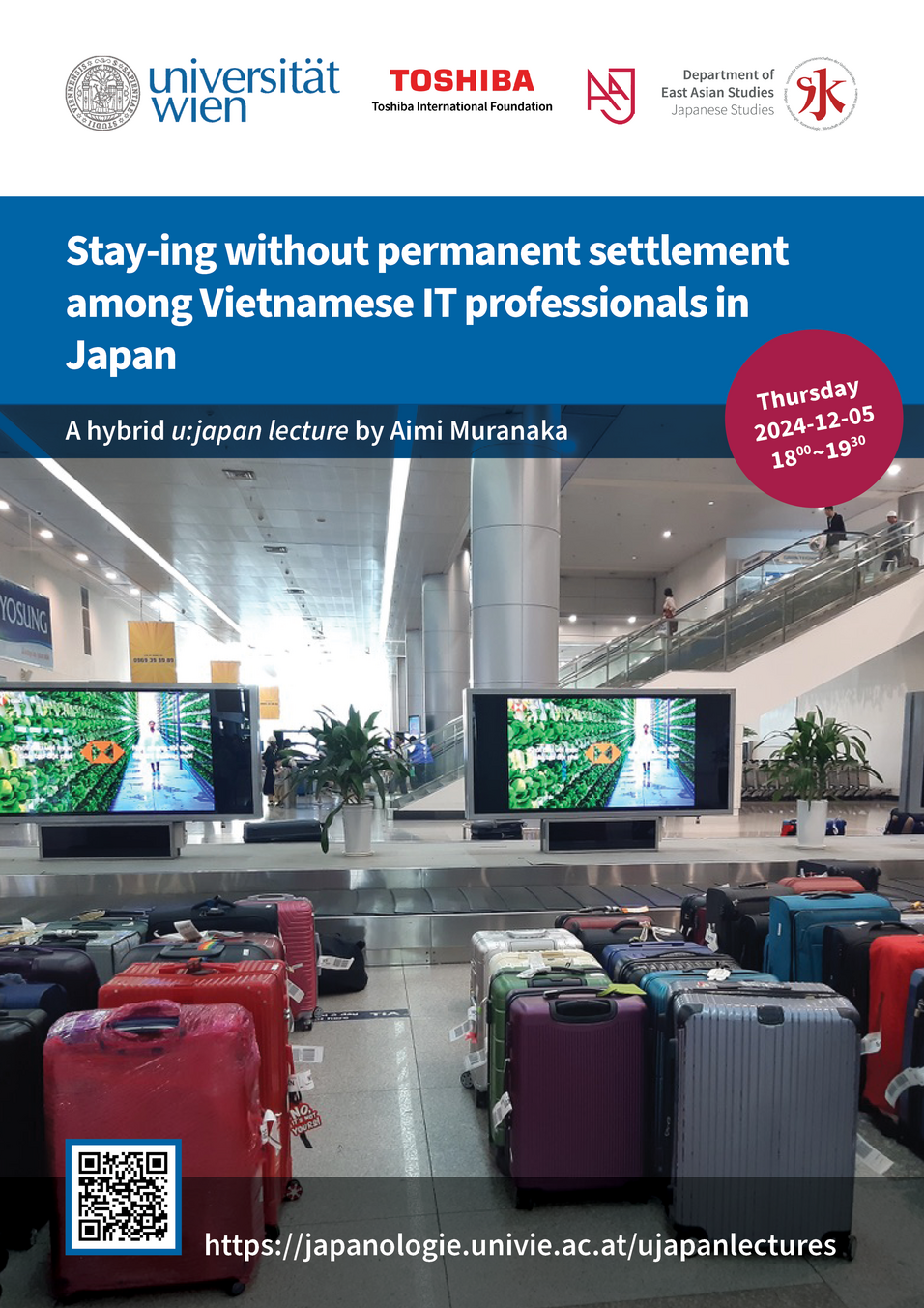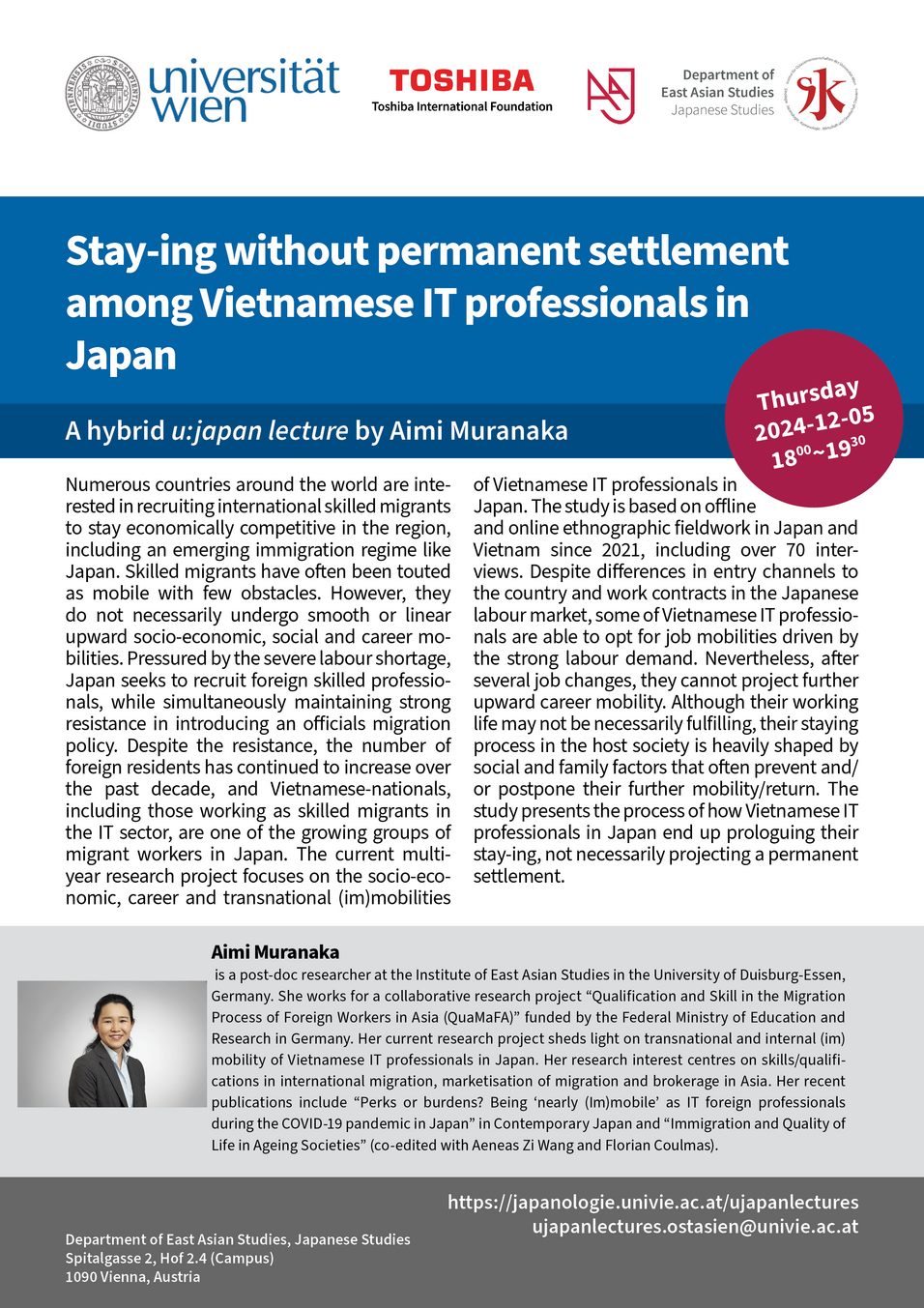| Abstract |
Numerous countries around the world are interested in recruiting international skilled migrants to stay economically competitive in the region, including an emerging immigration regime like Japan. Skilled migrants have often been touted as mobile with few obstacles. However, they do not necessarily undergo smooth or linear upward socio-economic, social and career mobilities. Pressured by the severe labour shortage, Japan seeks to recruit foreign skilled professionals, while simultaneously maintaining strong resistance in introducing an officials migration policy. Despite the resistance, the number of foreign residents has continued to increase over the past decade, and Vietnamese-nationals, including those working as skilled migrants in the IT sector, are one of the growing groups of migrant workers in Japan. The current multi-year research project focuses on the socio-economic, career and transnational (im)mobilities of Vietnamese IT professionals in Japan.
The study is based on offline and online ethnographic fieldwork in Japan and Vietnam since 2021, including over 70 interviews. Despite differences in entry channels to the country and work contracts in the Japanese labour market, some of Vietnamese IT professionals are able to opt for job mobilities driven by the strong labour demand. Nevertheless, after several job changes, they cannot project further upward career mobility. Although their working life may not be necessarily fulfilling, their staying process in the host society is heavily shaped by social and family factors that often prevent and/or postpone their further mobility/return. The study presents the process of how Vietnamese IT professionals in Japan end up prologuing their stay-ing, not necessarily projecting a permanent settlement.
| Bio |
Aimi Muranaka is a post-doc researcher at the Institute of East Asian Studies in the University of Duisburg-Essen, Germany. She works for a collaborative research project “Qualification and Skill in the Migration Process of Foreign Workers in Asia (QuaMaFA)” funded by the Federal Ministry of Education and Research in Germany. Her current research project sheds light on transnational and internal (im)mobility of Vietnamese IT professionals in Japan. Her research interest centres on skills/qualifications in international migration, marketisation of migration and brokerage in Asia. Her recent publications include “Perks or burdens? Being ‘nearly (Im)mobile’ as IT foreign professionals during the COVID-19 pandemic in Japan” in Contemporary Japan and “Immigration and Quality of Life in Ageing Societies” (co-edited with Aeneas Zi Wang and Florian Coulmas).
| Date & Time |
u:japan lecture | s09e07
Thursday 2024-12-05, 18:00~19:30
| Place & Preparations |
| Plattform & Link |
univienna.zoom.us/j/67322681056
Meeting ID: 673 2268 1056 | Passcode: 878295
| Further Questions? |
Please contact ujapanlectures.ostasien@univie.ac.at or visit https://japanologie.univie.ac.at/ujapanlectures/s09/#e07.


